Another Afghan hero who served with British forces is threatened with Rwanda deportation
Exclusive: Afghan Colonel who fought with British in Helmand province facing deportation from the UK
Your support helps us to tell the story
From reproductive rights to climate change to Big Tech, The Independent is on the ground when the story is developing. Whether it's investigating the financials of Elon Musk's pro-Trump PAC or producing our latest documentary, 'The A Word', which shines a light on the American women fighting for reproductive rights, we know how important it is to parse out the facts from the messaging.
At such a critical moment in US history, we need reporters on the ground. Your donation allows us to keep sending journalists to speak to both sides of the story.
The Independent is trusted by Americans across the entire political spectrum. And unlike many other quality news outlets, we choose not to lock Americans out of our reporting and analysis with paywalls. We believe quality journalism should be available to everyone, paid for by those who can afford it.
Your support makes all the difference.An Afghan colonel who fought alongside British troops and fled to the UK on a small boat has been threatened with deportation to Rwanda, in a new betrayal of heroic soldiers who supported coalition forces.
The war veteran, who was part of joint operations with UK forces in Helmand province during some of the fiercest fighting of the Afghan war, was left in fear of his life and claims he “was not helped in any way” after Kabul fell to the Taliban in August 2021.
Recovering from a wound sustained during combat, he left his wife and children behind in Afghanistan to find safety and, after a perilous journey across 11 countries, arrived in the UK on a small boat in September last year.
But, like the Afghan pilot who has been the subject of a campaign by The Independent that calls on the government to grant him asylum, the colonel received a notice of intent from the Home Office threatening him with deportation to Rwanda.
The notice came after he applied to the Ministry of Defence’s resettlement scheme, also known as Arap (the Afghan relocations and assistance policy), towards the end of 2021, while he was still in Afghanistan. He says he received a follow-up call from a British official but that he has heard nothing since.
The colonel is one of a number of Afghan veterans who have had to resort to illegal routes to get to the UK because of the restrictions and delays plaguing the government’s dedicated Afghan resettlement schemes.
Former head of the Royal Navy, Admiral Lord West of Spithead, said Britain has a “moral obligation” to those Afghans who “fought on our side and fought with us”. “They are at risk in Afghanistan, and that is why they have to get out,” he said.
A former head of the army, General Lord Richard Dannatt, said: “This is another example whereby people have tried to do the right thing by applying for the Arap scheme but have been ignored or let down.
“People like this colonel, and the pilot, should have their cases examined as a matter of urgency and, if genuine asylum seekers, be allowed to remain here as if they had come via the Arap scheme.”
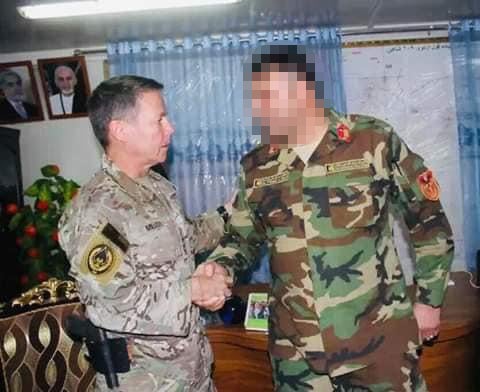
Shadow defence secretary John Healey MP said the defence secretary “must urgently fix the failing Arap scheme”. “We must fulfil our moral duty to protect and assist these Afghans who are at grave threat from the Taliban,” he said.
Speaking to The Independent, the Afghan veteran – who says he has been injured more than 20 times in his combat career – described how the uncertainty of the situation had left him stressed and anxious.
“The whole situation is affecting me mentally now. I am worried for my family. If my situation gets better here, then I will be able to make plans for them. But until that happens I am very stressed,” he said.
The colonel, who is being supported by charity Care4Calais, is living in Home Office accommodation in the UK and is given £9 per week for living expenses by the government.
Like many other veterans, he came to the UK because of the fond memories he had of the British forces he worked alongside – specifically those he was stationed with in Helmand province.
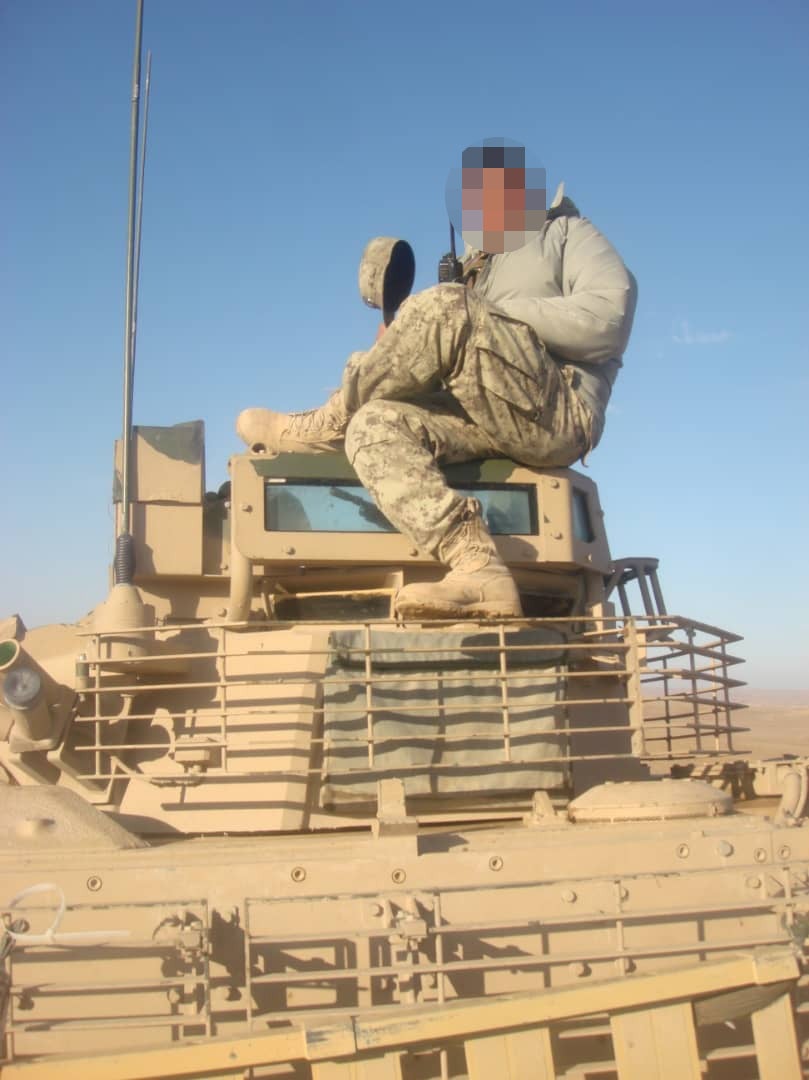
He said: “From school days, I was seeing the soldiers and fighting in my country. I was interested in the army, and so, when the foreign forces came, I joined the [police training] academy. I worked first for many years as part of the Afghan National Police special forces, and in that role I was involved in operations, shoulder to shoulder with the mainly British and American forces, in Helmand province.”
He explained how he and his colleagues would often go on joint operations and night patrols with the British after receiving information about an enemy presence in a certain location.
“Obviously it was scary. We are at risk of being killed at any time, either from landmines being everywhere or being fired at,” he said.
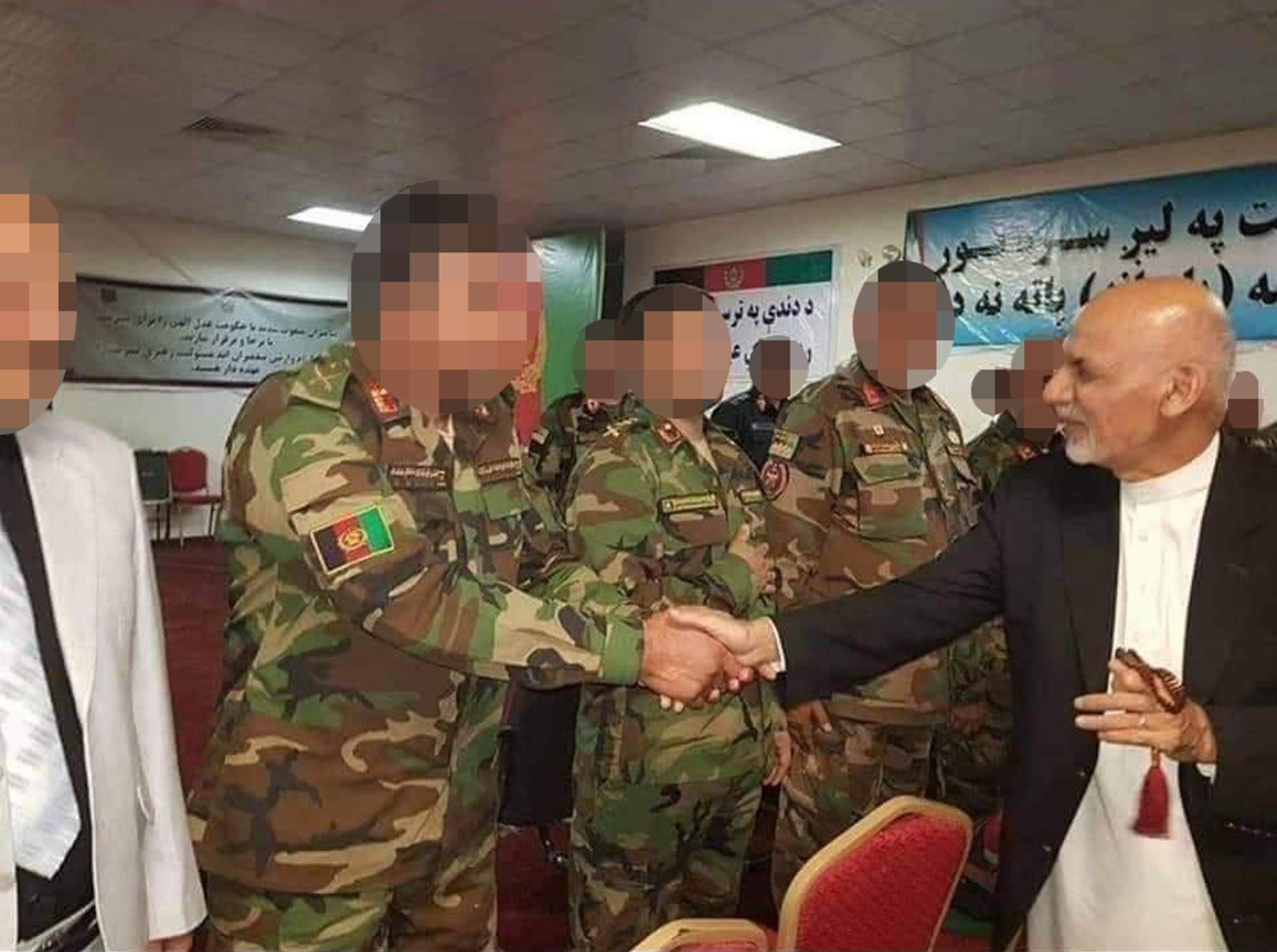
The Independent has seen photos and certificates that document the colonel’s time in Helmand province serving alongside the International Security Assistance Force. Multiple photos show the colonel with British armed forces personnel based there at the time.
One photo taken during his time in the Afghan national army shows the colonel shaking the hand of four-star US general Austin Scott Miller, the final commander of the Nato and American forces in Afghanistan. Another shows him with Afghanistan’s then-president, Ashraf Ghani.
Following his career in the Ministry of Interior Affairs, he was made a regiment commander in the Afghan national army and moved up the ranks. Describing one particular mission during this time, he said: “There was a blockade made by the enemies, so we had to go and clear the route and defeat the enemies. The next morning, on my way back, my tank was ambushed. The driver’s neck had been cut off or chopped as a result of his injuries. I was injured on my stomach on the side.”
When Afghanistan fell to the Taliban, the colonel said he witnessed the government’s collapse from a bed in a military hospital. He says he spent around 20 days recovering from being shot in the leg while in the south of the country.
A well-known senior army chief, he knew he would have to flee his homeland within days or face being hunted down by terrorists.
He said: “Unfortunately, towards the end, everything that happened, it left us with a feeling of abandonment and being left behind. No one cared what happened to us, the military personnel and the country as a whole. Towards the end, even the ammunition was cut off; the dead soldiers were left behind.”
The Independent has launched a petition calling for the UK to support Afghan war heroes who served alongside Britain
He managed to flee from the military hospital with the help of friends and go into hiding, before going by car to the Iranian border to make the crossing by foot.
The colonel’s journey to the UK took him across at least 11 countries in a trip that would be plagued by illness as the stress of the journey took its toll on his leg injury.
He explained: “I was in Iran for around two months, and I had to stay for a while because of the swelling in my leg. There was an Afghan doctor in a hospital there, and he was able to do an operation on my leg.
“I then made my way to Turkey and stayed there for a while longer. I tried many ways to try and leave Turkey, but I was not lucky. I didn’t have enough money to pay for the boat. I tried once to cross over to Greece, but that was a difficult experience. I had severe beatings on that occasion. I tried to cross over to Bulgaria several times.
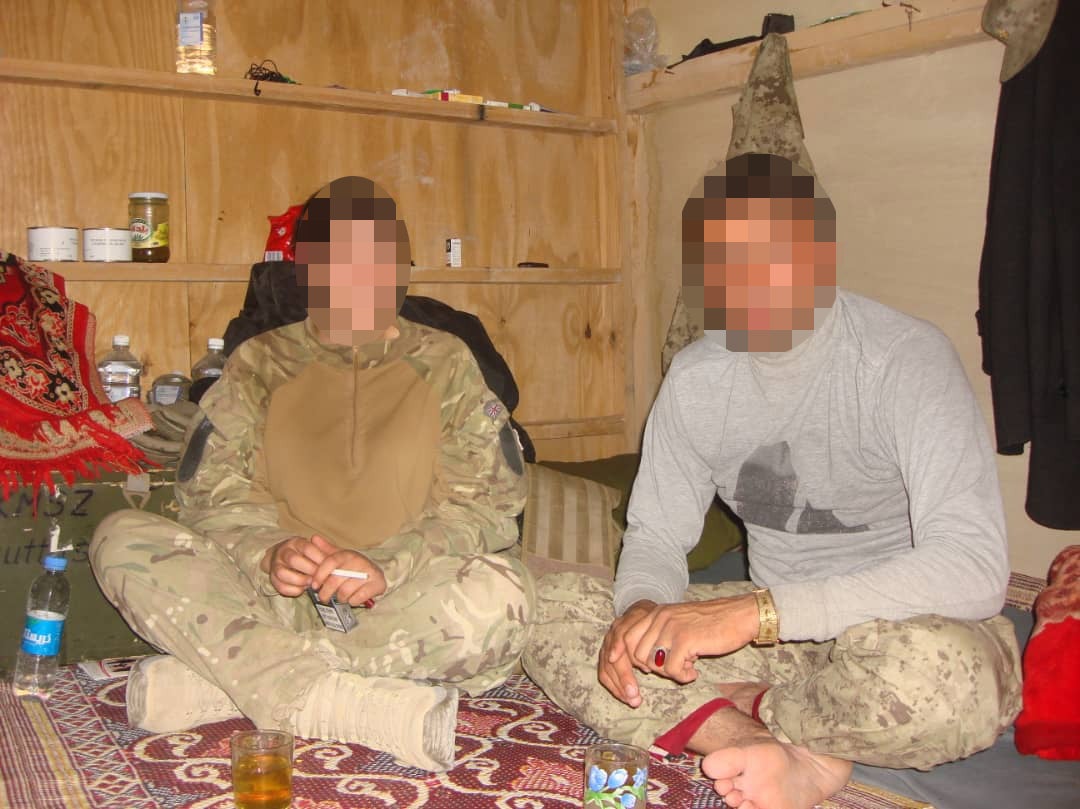
“The beatings I received from border force in Bulgaria made my wound swell again, and I was hospitalised in Turkey for two nights on that occasion. On my last attempt, I was successful to cross into Bulgaria, and I walked for 21 days in a row until I could cross over into Serbia.”
With the help of a smuggler, the colonel was able eventually to make his way to Germany.
“I had to stay there for a while because of my leg injuries, and I thought about where I should be going to. The UK came up as the better option than any other ones, because of my involvement with the British forces back in my service.”
The Home Office notice, sent in February this year, says that officials are considering whether his journey through multiple European countries would make his asylum claim inadmissible.
It adds that he could receive assistance “should you wish to withdraw your asylum claim and return to your country of origin”.
Speaking about the threat of removal to Rwanda, the colonel said: “I thought I had got to somewhere safe, but this is a worry now. My concern is what is going to happen to the family in case I am being sent to Rwanda; will I be stuck there?”
Though the colonel has applied for the government’s Arap scheme, defence minister James Heappey said this week that members of the Afghan armed forces would not qualify “in principle” for the scheme.
Guidance on the government’s website says that Arap is for “Afghan citizens who worked for or with the UK government in Afghanistan in exposed or meaningful roles”. However, its remit is in fact far more narrow.
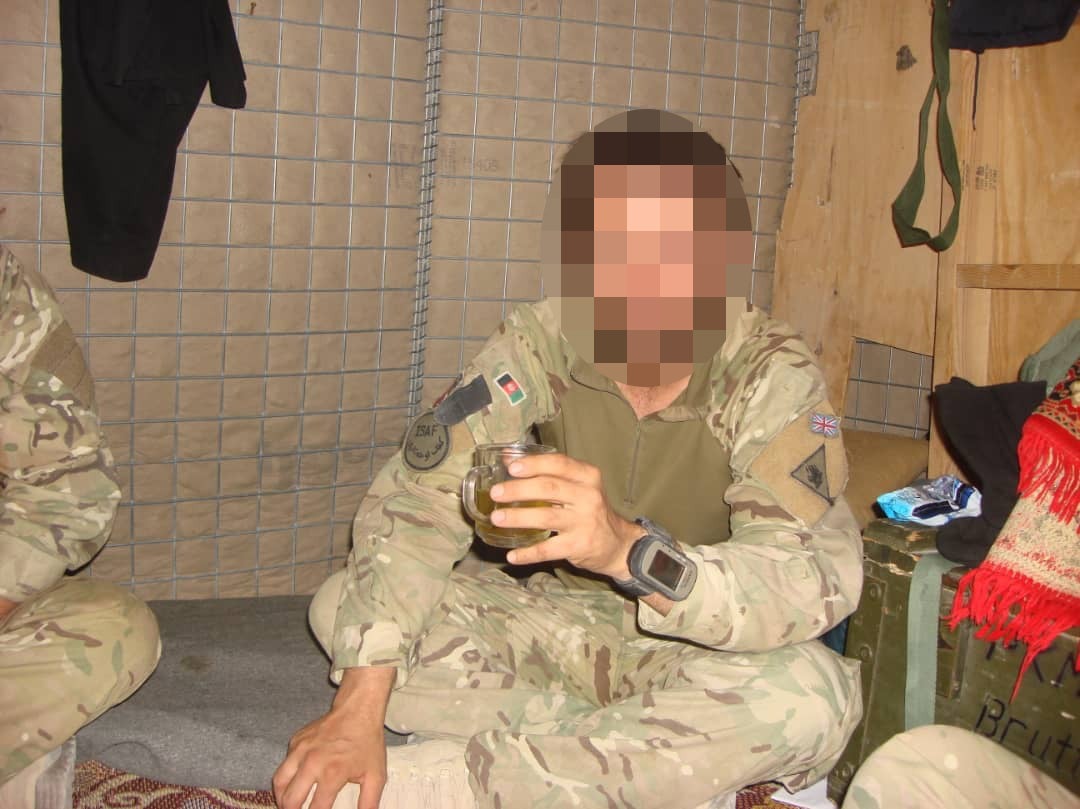
Steve Smith MBE, CEO of charity Care4Calais and a former British army colonel, said the system had been “intentionally designed to prevent refugees from seeking sanctuary in the UK”.
“It is leaving Afghan veterans with no safe route to claim asylum in the UK, and it’s time ministers intervened, withdrew their deportation threats, gave them asylum in the UK, and reunited them with their families who remain in danger in Afghanistan.”
A growing number of senior military chiefs, politicians and celebrities have backed The Independent’s campaign to stop the Afghan pilot’s threatened deportation to Rwanda.
Opposition leader Sir Keir Starmer, former Tory leader Sir Iain Duncan Smith, Hollywood director Guy Ritchie, music legend Sting, and former head of the UK armed forces General Sir David Richards have all called for the government to stand by those Afghans who supported the British mission.
A Home Office spokesperson said no one should be risking their life by crossing the channel or taking dangerous and illegal routes to reach the UK.
“We continue to work with like-minded partners and countries neighbouring Afghanistan on resettlement issues, and to support safe passage for eligible Afghans,” they added.






Join our commenting forum
Join thought-provoking conversations, follow other Independent readers and see their replies
Comments